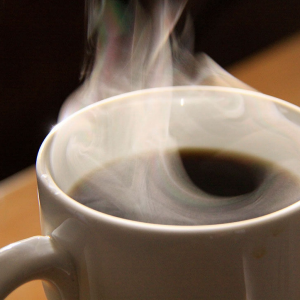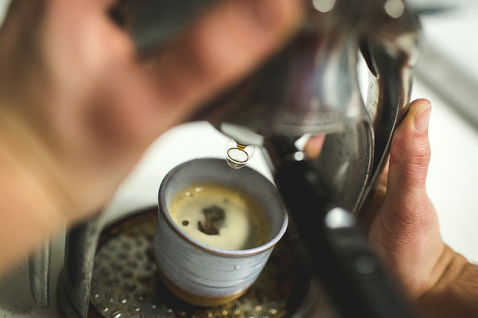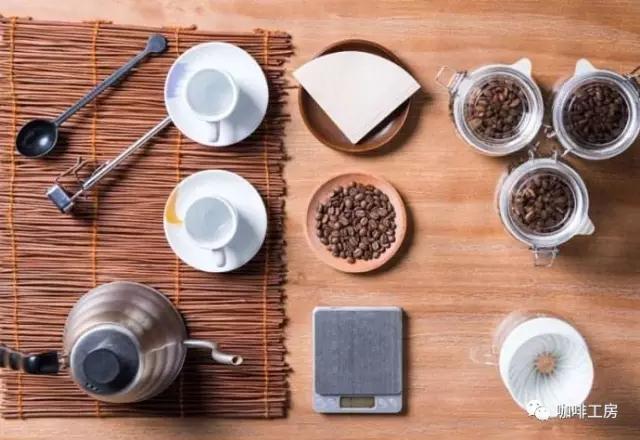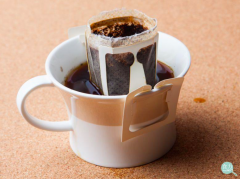Misunderstanding | is it really best to brew coffee in 85 degrees hot water?

Thanks to the famous coffee chain 85C, many people think that coffee is best soaked in 85C hot water.
On average, this knowledge may be true, but in fact it is not that simple.
Different coffee powder is suitable for different brewing methods.
Coffee beans are divided into Arabica and Robusta, and the perfect brewing temperature of each kind of coffee beans will change by about 10 degrees according to the characteristics of producing area and individual breeding. Generally speaking, the hot water temperature of brewing coffee ranges from 85 degrees to 93 degrees. The higher the temperature is, the easier it is to dissolve the bitter substances in the coffee powder. If you like bitter coffee, 85 degrees hot water may not be a good choice for you.
In addition, coffee brewed in relatively low temperature water tends to be sour, and some coffee beans are famous for their unique sour taste. If you want to taste the sour taste of coffee, you have to choose low temperature brewing.
The roasting degree and grinding thickness of coffee beans will also affect
In addition to the characteristics of coffee beans need to be considered, sun or water washing beans, baking degree, grinding thickness and so on will affect the presentation of coffee taste. the above criteria are still very spring for professional barists. some coffee beans will be more sour when brewed in hot water, because the beans are rich in acid and other acids are extracted.

(the picture is taken from Maz Pixel)
You don't know how to make coffee until you try it.
In addition to the water temperature, brewing coffee with different water such as tap water or mineral water will have different flavors. generally speaking, brewing coffee with water containing trace minerals can extract more coffee essence and taste better.
However, whether it is good or not is very subjective. Coffee is not good to extract all the substances contained in it. It is not good if there are too many bitter substances such as tannins in coffee, unless you like the bitterness of coffee very much. If you have free time to explore the brewing method of a certain type of coffee, instead of listening to the general brewing rules, you should try more than yourself. After all, your tongue is your own.
(the first picture is taken from flickr)
Important Notice :
前街咖啡 FrontStreet Coffee has moved to new addredd:
FrontStreet Coffee Address: 315,Donghua East Road,GuangZhou
Tel:020 38364473
- Prev

Hand-punch class: manual extraction guide for HARIO V60 filter cup
As for the source of V60 hand dripping coffee and the key to making a perfect cup of coffee, just see if you can sell a few cups and beans. Since Japan produced a V60 drip filter cup, it has immediately become popular all over the world. Every upgrade of coffee utensils seems to have something to do with this island country that pays attention to the quality of life and enjoys the fun of life. The qualification of a new appliance has gone through countless times.
- Next

Rumor dismantling | hanging-ear coffee does not contain a wet strength agent that can cause cancer
Market hanging-ear coffee is mainly made of non-woven cloth, using wet technology, the appearance and touch of the coffee is similar to that of paper, but no wet strength agent will be added. Taiwan nephrologist Jiang Shoushan said publicly on Facebook on September 16, 2016 that "hanging-ear coffee is usually packaged in paper, but under the brewing of hot water, the paper is not broken, mainly because this piece of paper has a wet strength agent."
Related
- Beginners will see the "Coffee pull flower" guide!
- What is the difference between ice blog purified milk and ordinary milk coffee?
- Why is the Philippines the largest producer of crops in Liberia?
- For coffee extraction, should the fine powder be retained?
- How does extracted espresso fill pressed powder? How much strength does it take to press the powder?
- How to make jasmine cold extract coffee? Is the jasmine + latte good?
- Will this little toy really make the coffee taste better? How does Lily Drip affect coffee extraction?
- Will the action of slapping the filter cup also affect coffee extraction?
- What's the difference between powder-to-water ratio and powder-to-liquid ratio?
- What is the Ethiopian local species? What does it have to do with Heirloom native species?

